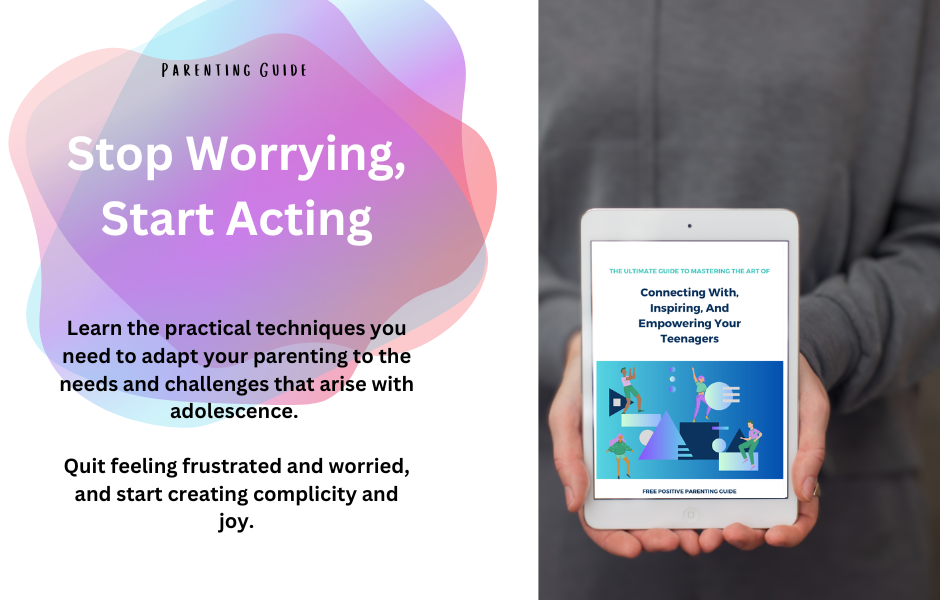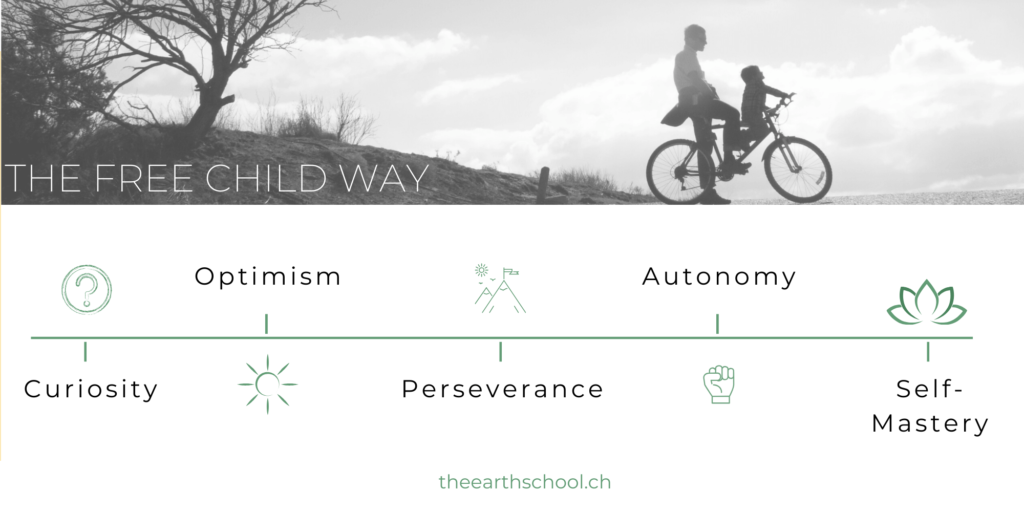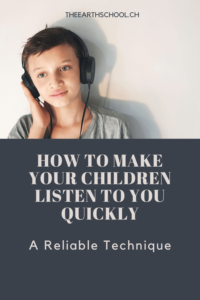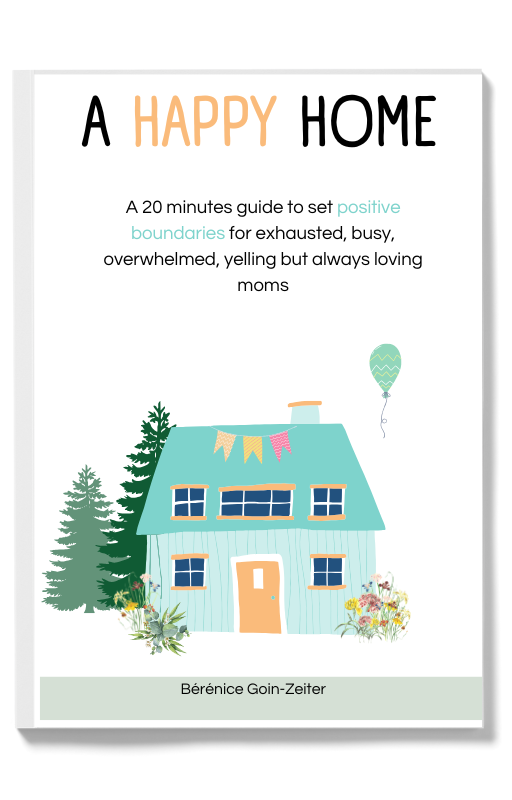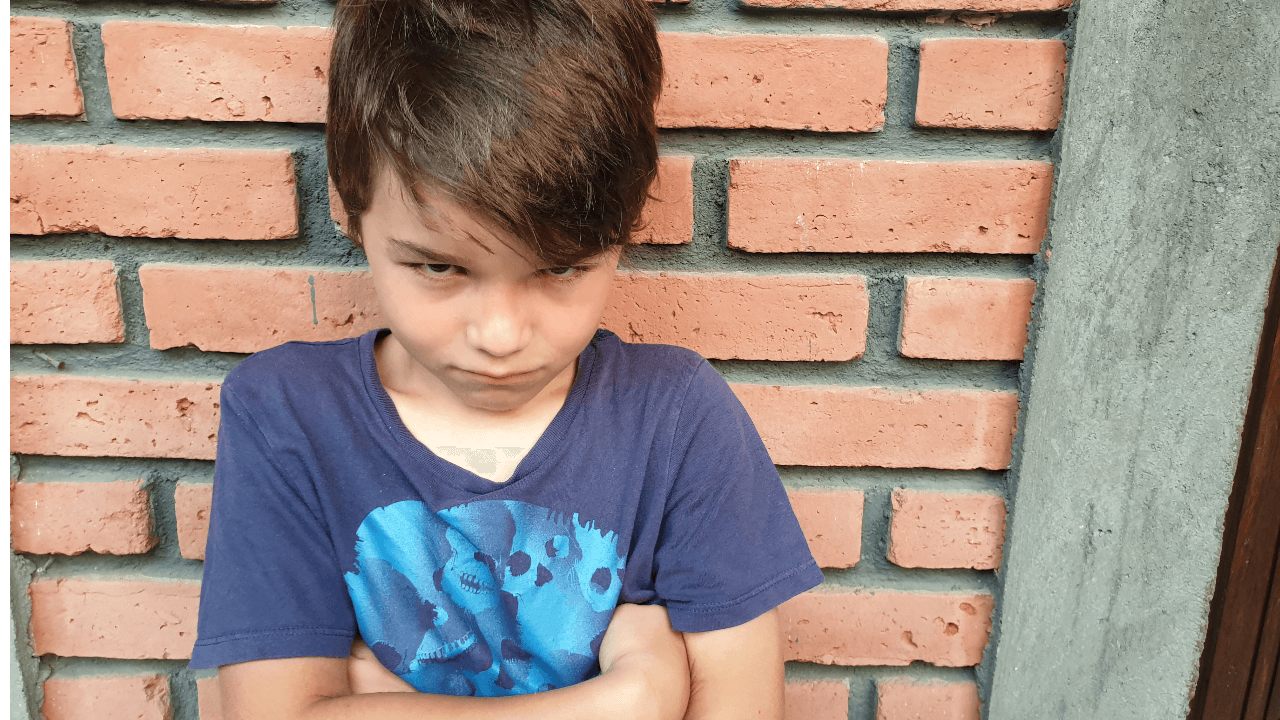
#8 You Should Be More Polite To Your Children: Here Is Why.
I did a test. I googled “How to be polite to your children?”. I got 98 100 000 results, all about how to teach manners to your child. What does it mean? That adults don’t need to be polite to children? But don’t they learn from us? Are we asking something of us that we are not able to do ourselves?
Do you sometimes feel bad about the way you speak to your child(ren)? When you feel tired and on edge, nothing works the way you want and you take it out on your kids?Later that night, you’re lying in bed and you feel guilty because it was not nice of you to speak to them that way.
These are the moments where you realize you’re not speaking nicely. But what about all the other moments? The ones you are being rude without even noticing?
Do you think you’re never rude? Let’s take a test, shall we?
Are you ready to take the « Are You A Polite Parent Test? » .
You don’t have time right now? Download the PDF of this blog post and come back to it later!
Start by taking our test!
This was the first part of the exercise, the one where you wonder if you are polite and respectful to your children.
You can share your result as a comment if you wish. Don’t feel bad if you haven’t got the “polite parent badge” yet. It’s what this post is about. Don’t worry, you’ll have it by the end of the article 😉
Now, part two. This one is an eye-opener. I would like you to retake the test, BUT this time, let’s see if you are a polite host. You heard me. I made some slight changes in this test. Go ahead!
Congratulation for your involvement. You took the two tests. Take the time to reflect on the results. I would advise to taking a couple of minutes for it at this point.
-
How do feel about the result?
-
Does it mirror what you thought about yourself?
-
What fresh thinking did it give rise to?
Now, let’s work together on the question “do you sometimes ignore your child(ren) when they speak?”. I chose this one because I believe that every parent in the world did it at least now and then, don’t you think? Especially when you are homeschooling, and you’re at home all day, every day, with your child(ren). At some point, you just cannot take any more kids’ chatting.
And yet, ignoring someone, no matter how old, no matter why, is disrespectful.
What does it mean to be rude or disrespectful?
First, I would like to make sure that we are on the same page. We all have our values and ideas (and beliefs of course). Each one of us has his representation of rudeness, or rather, in the description you’ll read below, some aspects of it will touch you more than others. It is a good thing to acknowledge this and to know your soft spots. And also to understand that they are yours and yours only. Your child, or everyone of your children, has his sensibility and what’s ok for you might not be for them.
For example, I am immune to sarcasm and I use it quite a lot. Actually, less and less as I’ve come to understand that it can affects people, but still, that’s kind of my thing. My daughter, Cassie, who’s 9, is very sensitive to sarcasm. It took me a while to realize that and understand why she was reacting so badly to what I thought was humor. It was hurting her, but for me I was just joking. Do you see how your vision can come in the way of understanding other’s feeling?
[Tweet “What do you think is humour can hurt #children”]
Back to our definition of rudeness.
What do I mean by being rude or disrespectful?
There are many ways to being rude. With words we already have quite a collection:
-
rudeness: “shut up”, “get the Hell out of here”
-
sarcasm: “you should become an actress”, “this grumpy face suits you so well”
-
threatening: “stop crying or I’ll give you something to cry about”, “don’t make me…”
-
guilt: “you make me so sad”, “don’t be so selfish”, “I’m disappointed in you”
-
dismissing: “it’s not that a big deal”, “stop crying right now”, “I don’t care”
-
insulting: “why do I have to tell you things 1000 times?”, “you’re being ridiculous”
-
judging: “you’re so lazy”, “you’re getting fat”, “you’re just like your mother/father”
Some we might not realize how hurting they are, like dismissing, or judging.
We already have quite a collection of occasions to be rude and disrespectful, but what children get even faster and deeper than words is the non-verbal communication.
We all do actually, not just kids.
What’s non-verbal communication?
-
Our tone: the way you tell something says way more than the actual message. A child is very sensitive to it. This is why my daughter could tell sarcasm from casual talking, because of my tone. Examples of rude or disrespectful tones could be: aggressive, threatening, yelling, with an edge, with mockery,… Of course, we adults are also more sensible to it than to words. Take a few minutes to think of something someone told you lately. Something that seemed rather harmless, but because of the tone used, you could tell it was not that innocent. I bet you didn’t like that? Well, kids don’t either.
-
Our behavior: what’s your body saying? Your body doesn’t lie, and it says a lot. No matter how nice are your words and your tone, if you don’t mean it, your body will give you away. This is why hypocrisy or lies won’t work with children. You can’t pretend, if you want to be respectful and polite to your children, you have to mean it, deeply. On behaviors, there is another way to be rude or disrespectful, and that’s our gestures. A menacing finger, a dismissing hand, a roll of the eyes, showing a back rather than your face, these are all hurting and affect your child. The thing is, our body tends to react faster than our mind, on behalf of our emotions, so if you’re upset, you will show it even if you don’t want to. Until you’ve learned to deal with your emotions. But that’s for another day 🙂
As you can see, we have quite a lot of occasions and ways to be impolite. That makes it all the more important to understand why we tend to be more polite with adults than with children and how we can remedy that.
Why are we more polite to guests than to children?
The first time I heard about this idea was in a book from John Holt. I stood open mouthed. How come I never realized that? And most importantly, why was that?
I asked myself a couple of questions first:
-
Do I have less esteem for my kids than for my guests?
-
Do I care more about my guests than about my kids?
-
Do I think that adults deserve more consideration?
-
Do I think that my kids get less affected than my guests?
The answer to all those questions was obviously “NO”. You might think that it’s ridiculous to even ask them. Children and their well-being are the most important things to a mother. Which makes this all affair even more mysterious.
There isn’t one simple answer to the question we try to solve today. It lies in multiple aspects of our life, society and education. Let’s see that in detail:
1. Because of other’s opinion of you
Most of us behave better when somebody’s watching, isn’t that right? A few years ago, we began a road trip of several months with a family of friends. This is when I noticed that my husband and I where far more polite and nice to our children when somebody was there to watch us.
At first I thought that it was terrible I would need witnesses to be nice all day long, but after a while I took it as a chance to practice and become a better mom.
Why is other’s opinion so important? When we see a mother with her child(ren), we create an idea of what kind of mother she is according to those few moments we witness. But this picture isn’t always accurate: one day, I told a friend of mine that I was so impressed by the way she was speaking to our her children and she answered “you should hear me yell at home!”. Since that episode, I don’t take what I see for granted anymore 🙂
We all want to give a good image of ourselves. Especially when it comes to motherhood, as it seems that (this is a personal observation, feel free to comment if don’t agree) when you become a mother, there is this kind of social agreement that we become a public project for anyone to improve.
This is a part of the explanation of why we are more polite to our guests than to our children. Our guests will judge us and we want to give a good image. While we care less about the opinion of our children, or rather, it would be too hard to keep up the show on a long term basis.

2. Because of our society
At first, I wanted to write “because of our education”, but that wouldn’t be quite right. Of course, the way we were raised has its weight in the scales, but our education, and the one our parents got before us and so on, depend of the society we live in. It is the society that gives the codes of conduct and thinking, through formal education, through advertisements, newspapers and so on.
This is why children are seen in a way in western countries and completely differently in Japan let’s say.
How do we see children and childhood in western societies? This will provide another part of the answer to the question “Why are we more polite to guests than to children?”
Life is like a curve: we are born, we grow up and we gently decline until our death (obviously there are more possible scripts but let’s keep the common one here).
Can you visualize that curve? They are no steps or cuts in it, unlike insects who might experience transformation we merely grow up.
And yet we make a distinction between “childhood” and “adulthood”, as if the were different species. Our attitudes and feelings, but also our laws and customs create a gap between the two and make it impossible for the children to take an active part in our society, for example.
We have all the “you’ll get this when you’re older”, “you will when you grow up” and so on. But it is quite new to human history that a person would be a “child” until 18 years old. In traditional societies, rituals to enter manhood/womanhood usually take place around 12 years old, with puberty.
Reflection on politeness and children
What I mean here is that we see children as “children” not as persons. We think of childhood as of a protected part of life, where small humans should play, be innocent and protected. If we take a step back and look at our childhood with honesty, we can see that it was never all unicorns. I won’t list here all the things I have experienced in my childhood that made it far from innocent and protected. I’d rather have each one of you to reflect on his/her childhood.
From this childhood and those experiences you became the adult you are today. Not overnight, but in a slow and gentle process. You didn’t fall asleep one night as a child and woke up grown up. When you think of yourself as a kid you think of YOU. Of the person you are, at a different time of your life.
I want you to experience this feeling, because this is how you will see your children for what they are: not just children, but real person, who are growing into adults, yes, but a person all the same.
Only by changing the way you look at your children, and the idea you have of them, can you change the way you address and respect them.
How to become more polite and respectful to my child(ren)?
1. Understand what being polite means
By reading this post and doing the tests, you already took the path to respect your child more. Because what means being polite? When one is polite, he/she shows respect to the person he/she’ talking to. Being polite means that you have consideration for the other. Understanding this, and realizing that we might not always be as respectful as we should towards our children is a fantastic step one. Well done!
2. Observe yourself
You also had a chance to see the different ways disrespect can take when communicating. They are more ways of being disrespectful of course and if I failed to mention one that is important to you, please add it in the comments. By acquainting yourself with those behaviors, words, and tone of the voice, you will become more aware of them. Don’t let this be a simple reading. Be active in the change of your attitude. Acknowledge the moments where your behavior is disrespectful and think of what you could have said/done/shown instead. Remember, the one who wants to change will change. Intention is the key.
3. Take action
Now you started to notice all those little moments in your everyday life where you wish you had done better. This is not the time to feel guilty or disheartened. You have the clarity and the will, so the next time an identical situation arises, try and change your response to it. Efforts will become habits, and habits will become the norm.
4. Be critical
I am thinking here of the idea of children and childhood in modern western societies. It is not because most people think something that this is right. You already know it since you’re homeschooling actually. But sometimes it’s good to remember that trusting one’s heart and intuition is better than trusting public opinion.
5. Inspire others
As I said before, people are always looking at us and judging us. Instead of seeing it as a problem, you can use it to inspire them. They cannot not notice that you are polite to your children. Because we are so used not to be. We give them orders all the time: “sit down!, go there!, come here!”. Being polite and respectful doesn’t mean that you cannot expect something from you children, only that you can ask in a way YOU would appreciate to be asked. People will witness your attitude, and it will make them reflect on theirs.
[Tweet “#Politeness is the art of choosing among your thoughts. Mme De Stael”]
What’s next on the path to being polite to your children?
In this post, you found out if you’re a polite and respectful parent to your child(ren). You realized how we speak/behave to/towards adults and children in different ways. You got some ideas of explanations to explore and steps you can take to implement a real change in your relation to your children.
This won’t be an overnight change. Changing one’s mind and ideas on something that takes time and will. But as I said if you want to change you will change. Keep the guest test in mind, and look at yourself, listen to yourself through this filter to help you notice when you could do better.
As you change, this new way of behaving will benefit your children forever, as they will learn to do the same in the process.
You will see that they will become more respectful with their siblings and friends, as well as with you.
It will benefit you even more as it will bring more harmony and respect in your home. Who would say “no thanks” to this?
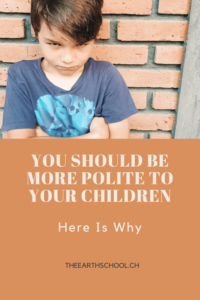
Thanks for reading this article!
As always, I hope it gave you some line of thoughts to explore as well as ideas to act and create a positive change in your life. Don’t let t
he inspiration fades and take action right away:
- download our cheat-sheet, it’s on the house
- decide on the one action you will implement today and write it in your notebook
- share this article with 3 friends who could benefit from it
- save the article in your favorites
I wish you all the best with your kids, always remember that we all do the best we can at a given moment and don’t judge yourself harshly. Be confident and listen to your intuition. If what you do comes from a place of love, then you’re on the right path.
See you next week for our next article!

Don’t Forget To Join Our Community To Get Inspiration And Tips Straight in Your Mailbox
I wish you all the best with your kids. Always remember — we’re all doing the best we can in any given moment, so try not to judge yourself too harshly. Be confident and listen to your intuition. If what you do comes from a place of love, then you’re already on the right path.

If this post resonated with you — if you’ve ever walked ten paces behind your child, wondering if you’re ruining everything — come join us on Instagram.
It’s where I share reminders, reflections, and the odd parenting confession… for mums figuring it out one heart-twinge at a time.
If you want more resources, ⬇️ keep scrolling ⬇️
Looking for a way to set boundaries that feel fair for everyone? Here’s your home guide to healthy boundaries.
If your child is or is becoming a teenager, check out our parenting guide for teenagers!
